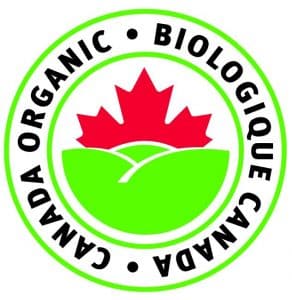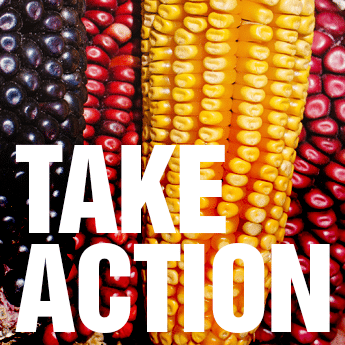Organics
Organic food is a non-GM choice. All certified organic food grown in Canada is produced in accordance with the Canada Organic Standard. Organic farming prohibits the use of GM seeds and synthetic pesticides and organic farmers make a commitment to many ecological and animal welfare practices.
Organic food reduces our exposure to GMOs and pesticides, is healthy for soil, plants and animals, and reduces our carbon footprint.
Organic food in Canada is produced according to a national standard, regulated by the Canadian Food Inspection Agency, and each organic farm is certified by third party inspectors.
 Canada Organic Standards
Canada Organic Standards
Include:
- No genetically modified seeds or products
- No synthetic pesticides
- No irradiation
- Animal welfare practices
- Soil building practices
Take the Quiz from Canadian Organic Growers: Organic Myth vs Fact
The Principles of Organic Farming
The Canada Organic Standard sets out seven general principles:
- Protect the environment, minimize soil degradation and erosion, decrease pollution, optimize biological productivity and promote a sound state of health.
- Maintain long-term soil fertility by optimizing conditions for biological activity within the soil.
- Maintain biological diversity within the system.
- Recycle materials and resources to the greatest extent possible within the enterprise.
- Provide attentive care that promotes the health and meets the behavioural needs of livestock.
- Prepare organic products, emphasizing careful processing, and handling methods in order to maintain the organic integrity and vital qualities of the products at all stages of production
- Rely on renewable resources in locally organized agricultural systems.
- Principle of Health: Healthy soil, plants, animals, humans = healthy planet.
- Principle of Ecology: Emulating and sustaining natural systems.
- Principle of Fairness: Equity, respect and justice for all living things.
- Principle of Care: For the generations to come.
Updates
- “Products obtained through genetic engineering processes should not be released into the environment. In any case such releases should not take place without a prior rigorous, multistakeholder designed and agreed risk assessment protocol that includes input from the organic sector and like-minded movements, and an assessment of the possibility to prevent the presence of such products in organic products and GMO-free products”
- “No patents should be granted on genetic resources, which should remain freely exchangeable and available to breeders and farmers.”






